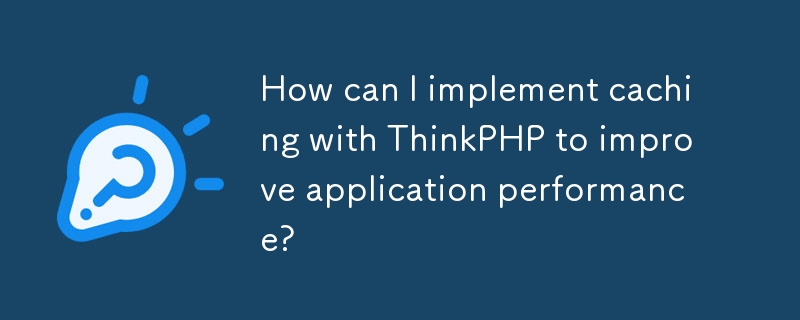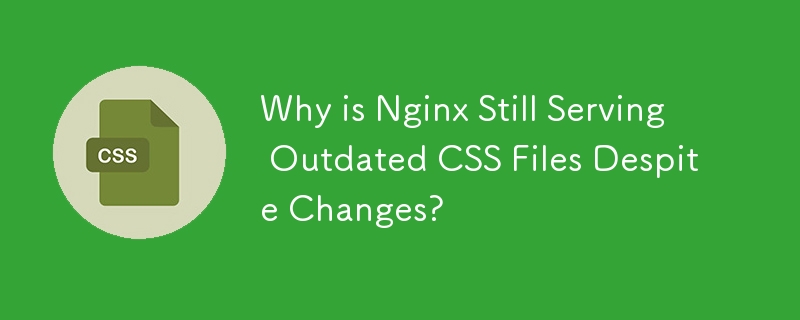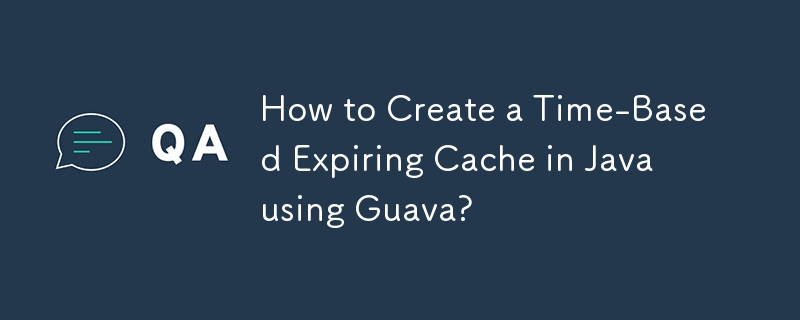Found a total of 10000 related content
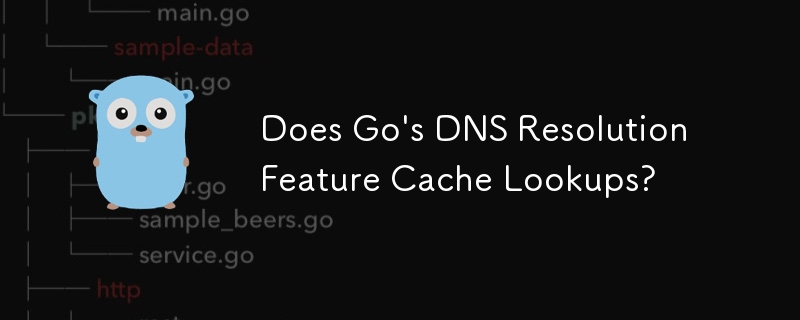
Does Go\'s DNS Resolution Feature Cache Lookups?
Article Introduction:Does Go's DNS Resolution Feature Cache Lookups?The Go programming language's standard library lacks a built-in mechanism for caching DNS lookups...
2024-11-06
comment 0
905
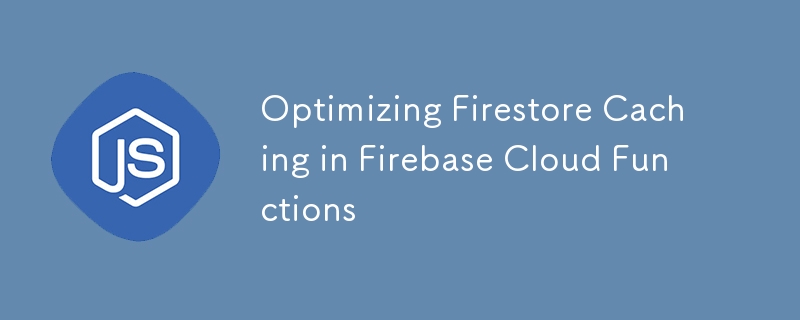
Optimizing Firestore Caching in Firebase Cloud Functions
Article Introduction:Understanding @libs-jd/cloud-firestore-cache
When working with Firebase Cloud Functions, managing Firestore data efficiently can be tricky.
The @libs-jd/cloud-firestore-cache library offers a simple solution for caching Firestore data within a sing
2024-12-09
comment 0
869

Explain how to implement caching in PHP.
Article Introduction:The article discusses implementing caching in PHP to improve application performance by reducing costly operations. It covers choosing a caching mechanism, implementing a cache layer, using effective cache keys, and invalidating cache. Best practices
2025-03-21
comment 0
739
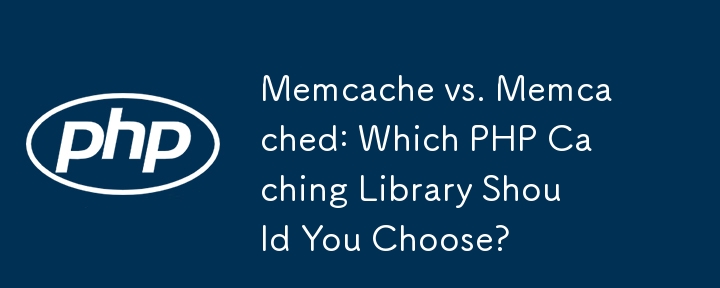

HTTP Caching : Everything You Need to Know
Article Introduction:Detailed explanation of HTTP caching mechanism
HTTP caching is a technology that improves web page performance by reducing server load, speeding up client response, and saving network bandwidth. HTTP caching is mainly divided into two types: forced caching and negotiated caching.
Force caching
Forced caching allows clients to directly use locally cached resources within a specified period of time without sending a request to the server. Forced caching is controlled by response headers specified by the server, mainly through two fields: Cache-Control and Expires.
Cache-Control
Cache-Control is a general header that specifies the maximum validity period of the resource (max-age) and whether the cache can be shared (pu
2025-01-20
comment 0
443
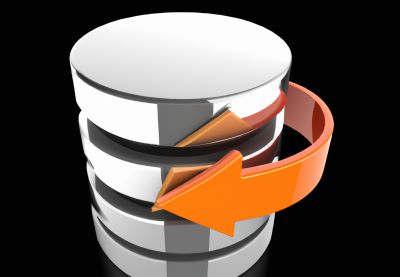
Set Up Caching in PHP With the Symfony Cache Component
Article Introduction:This tutorial introduces the Symfony Cache component, a straightforward method for integrating caching into your PHP applications. Caching significantly enhances application performance by reducing page load times.
The Symfony Cache Component: A Dee
2025-03-02
comment 0
946
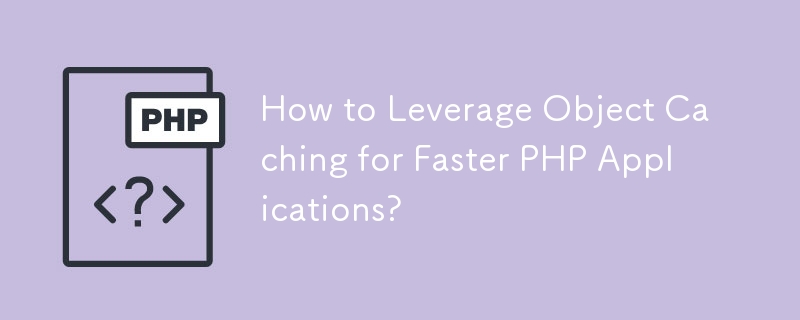
How to Leverage Object Caching for Faster PHP Applications?
Article Introduction:This article explores leveraging object caching in PHP to boost application speed. It details choosing a backend (Redis/Memcached), implementing a caching layer, serialization/deserialization, key generation, and cache invalidation. Best practices
2025-03-10
comment 0
1127
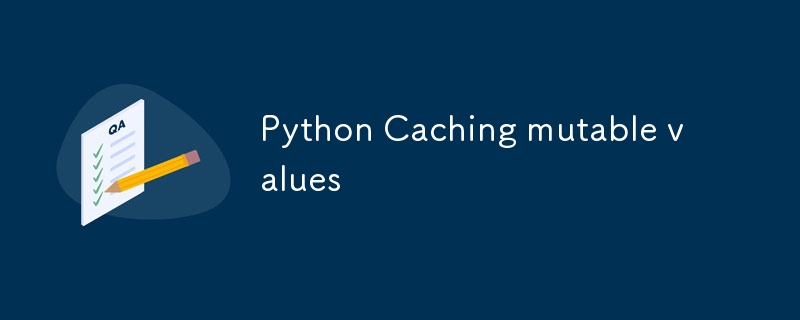
Python Caching mutable values
Article Introduction:Caching dramatically accelerates processing, from CPU-level operations to database interfaces. Cache invalidation—determining when to remove cached data—is a complex challenge. This post addresses a simpler, yet insidious, caching issue.
This proble
2025-01-26
comment 0
1090

How to clear cache in vue
Article Introduction:How to clear cache in Vue.js: Clear cache directly: Clear browser cache from the browser. Clear the Vuex cache (if you use Vuex). By creating a new Vue instance: Create a new Vue instance and pass a new data object. Other tips: Disable browser caching. Use a unique version hash. Clear the CDN cache (if you use CDN).
2025-04-08
comment 0
602
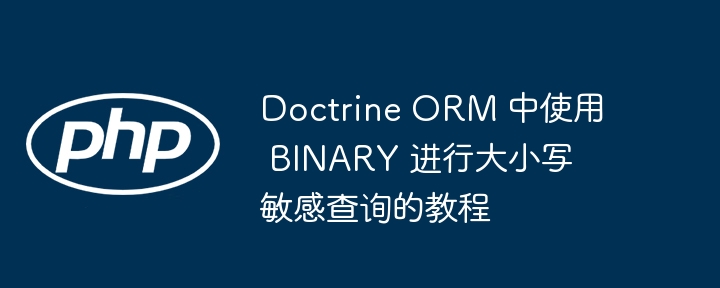
Tutorial on using BINARY for case-sensitive queries in Doctrine ORM
Article Introduction:This tutorial will guide you how to implement case-sensitive string queries in Doctrine Query Builder and DQL, especially with the BINARY operator. Since BINARY is not a DQL function natively supported by Doctrine, we need to extend the functionality of Doctrine by integrating the beberlei/DoctrineExtensions library and configuring custom DQL user functions to achieve precise data filtering in the application.
2025-08-26
comment 0
695
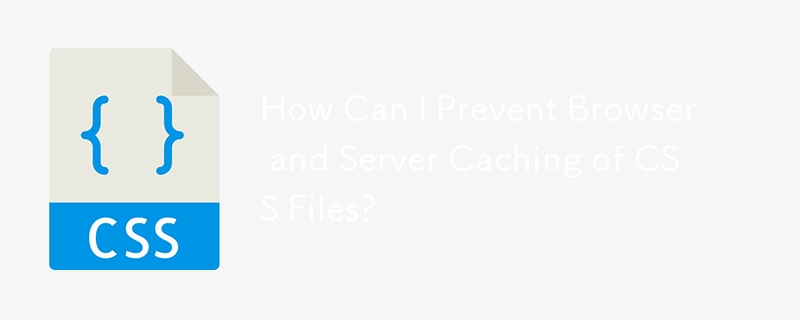
How Can I Prevent Browser and Server Caching of CSS Files?
Article Introduction:This article discusses the problem of stale CSS files and how to prevent browser and server caching. It outlines several methods to prevent caching, including appending a query string to the filename, using a Cache-Control header, utilizing mod_heade
2024-10-24
comment 0
1051

H5 browser caching mechanism and best practices
Article Introduction:H5 browser caching is a mechanism for storing web page data and resources, which can speed up subsequent access. Best practices include: setting the appropriate cache time; using strong cache; rational use of negotiated cache; controlling cache policies; testing and monitoring.
2025-04-06
comment 0
944
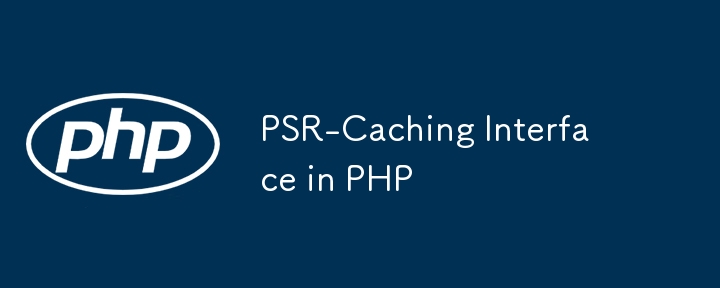
PSR-Caching Interface in PHP
Article Introduction:Hello everyone! Is your application running slowly due to repetitive database queries? Or have trouble switching between different caching libraries? Let’s dive into PSR-6, the standard that makes caching in PHP predictable and interchangeable! This article is part of the PHPPSR standards series. If you are new to this, you may want to start with PSR-1 basics. What problem does PSR-6 solve? (2 minutes) Before PSR-6, each cache library had its own unique way of working. Want to switch from Memcached to Redis? Rewrite your code. Migrating from one framework to another? Learn the new caching API. PSR-6 solves this problem by providing a common interface that all cache libraries can implement. nuclear
2025-01-11
comment 0
1287

Google clarifies how Google's crawlers handle cache control headers
Article Introduction:Google has added a new section to its crawler and fetcher documentation for HTTP caching, which clarifies how Google’s crawlers handle cache control headers. With that, Gary Illyes from Google also wrote a blog post named HTTP caching asking site o
2025-05-13
comment 0
837
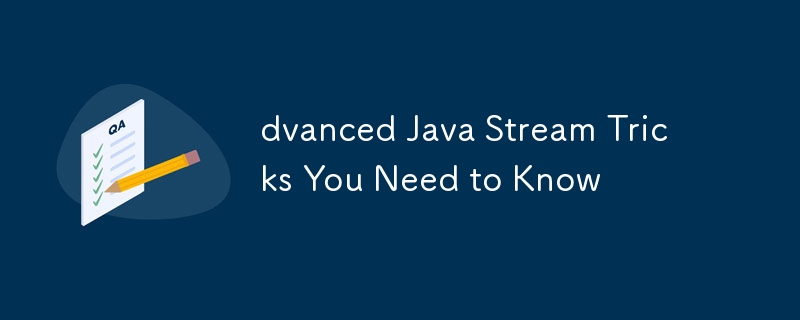
dvanced Java Stream Tricks You Need to Know
Article Introduction:1. Creating a Map to Cache an Entity
Caching entities in a Map can improve performance by reducing the need to repeatedly fetch data from the database or other data sources. With Java Streams, you can easily create such a cache.
Example Code
2024-11-10
comment 0
824

Understand various caching mechanisms of H5
Article Introduction:The caching mechanism provided by H5 includes: 1. Browser cache: stores the recently accessed resources and needs to control the Cache-Control header; 2. Server cache: managed by the server; 3. Offline cache: allows loading when there is no network, and a Service Worker needs to be created. Choosing the right caching strategy depends on the frequency of the resource update, helps increase loading speed, reduce server load and optimize user experience.
2025-04-06
comment 0
455






